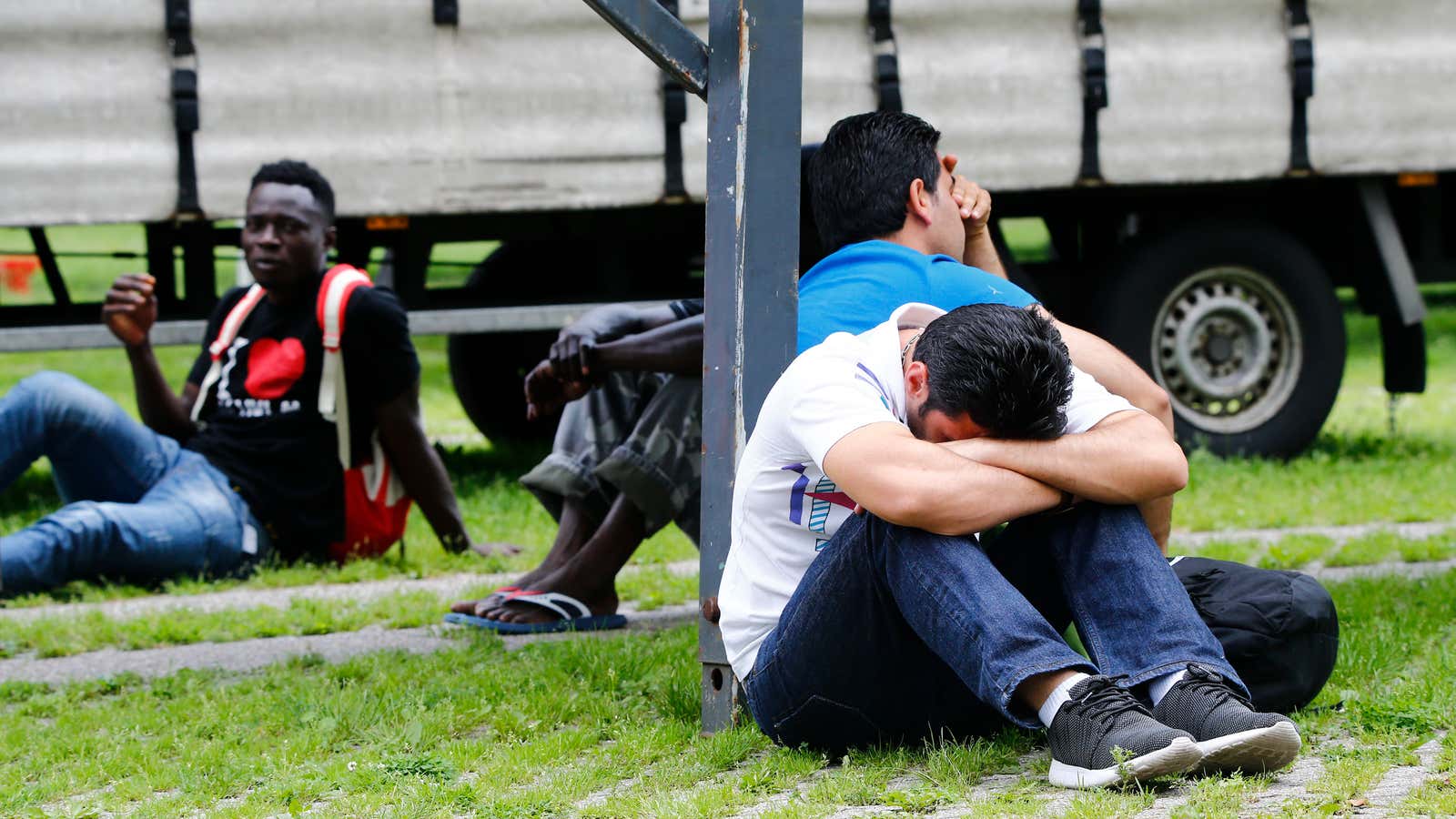An axe-wielding man attacked passengers on a German train last night (July 18). Authorities later identified the attacker as a 17-year-old Afghan refugee, who fled to Germany as an unaccompanied minor two years ago.
A hand-painted ISIL flag has been found among the teenager’s belongings in his room in the town of Ochsenfurt, where he was staying with a foster family. The details of the attacks could not have come at a worse time as millions of refugees try to integrate inside Germany and elsewhere.
A week ago, Pew Research explicitly asked a representative sample of Europeans respondents whether the recent surge of refugees increases the likelihood of terrorism in their country. Sixty-one percent of Germans linked the increasing numbers of refugees to an increased risk of terrorism.
This attack will only heighten tensions. Already, Pegida—a German anti-Islam street group—announced it has founded a new political party, which will be called the Popular Party for Freedom and Direct Democracy and will team with the far-right Alternative for Germany in next year’s elections.
Last summer, at the height of the European refugee crisis, when polling company YouGov asked Europeans how they felt about the influx of refugees, 57% of Germans said there were afraid. Germany went on to accept a million asylum-seekers in 2015—more than the US has in the past 10 years. Germany was later rocked by accusations of a mass sexual assault by Arab men on New Year’s Eve.
The backlash against refugees may be worse, even, than what followed the deadly Paris attacks last November.
After those, Poland announced it would refuse to take the small number of resettled asylum-seekers it had promised to house under the EU’s quota system. The US House of Representative passed a measure that would make it even harder for refugees from Syria and Iraq to enter the US.
In short, the attacks were used to justify the policies of those who feared the dramatic influx of refugees.
The age and status of the German attacker comes as a blow to campaigners across Europe who called on governments to do more for child refugees, particularly the ones who make the dangerous journey to Europe unaccompanied.
In the UK, the government initially resisted attempts to resettle 3,000 unaccompanied child refugees who had already made their way to Europe (though it agreed to take child refugees from refugee camps in the Middle East). After a huge backlash and increasing pressure, the government relented and agreed to rehome an unspecified number of lone child refugees in Europe.
Tommy Robinson, the former leader of the English Defence league, an anti-Islamic street movement, was quick to criticize the government’s change in policy. In a series of tweets, Robinson had slammed British politicians such as Yvette Cooper, who had heavily criticized the government for initially refusing to allow 3,000 stranded child refugees enter the UK.
